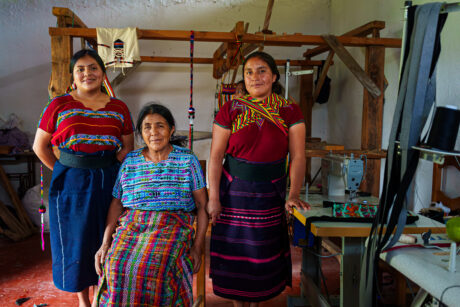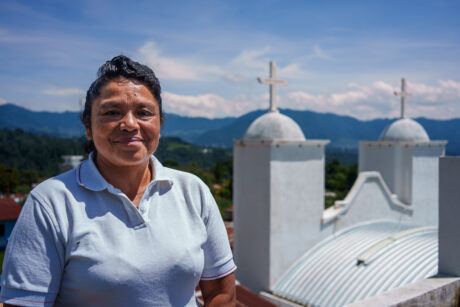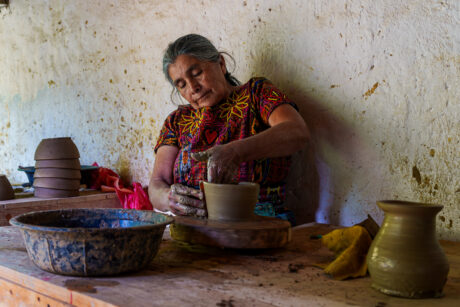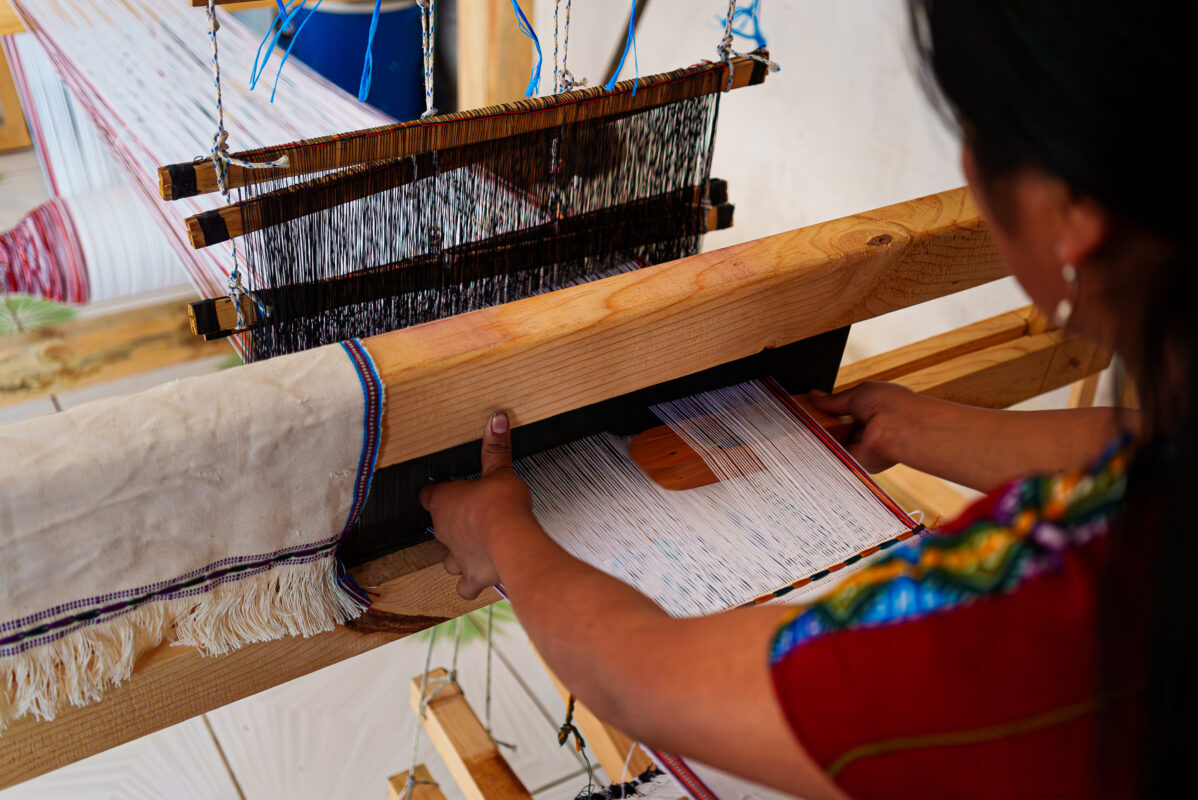Chiloja, Huehuetenango, GuatemalaYesenia Mejía Palácios, uma mãe de três, nasceu e foi criado nesta comunidade montanhosa nas Terras Altas Ocidentais. Ela é líder comunitária e atualmente é vice-presidente do Conselho de Desenvolvimento Comunitário, conhecido como COCODE (a sigla em espanhol), um de mais de 17,000 groups in the country.
Elected every two years, Mejia Palacios took on the COCODE role because she wants to “work in harmony, with joy, with colleagues, ensuring the improvement of the community and above all so that processes are transparent.”
“The COCODE is the highest authority within the community, to which citizens turn in case of an emergency or with any issues. It is the entity in charge of ensuring the community’s well-being through soliciting, managing and executing development projects,” explains Mejia Palacios.
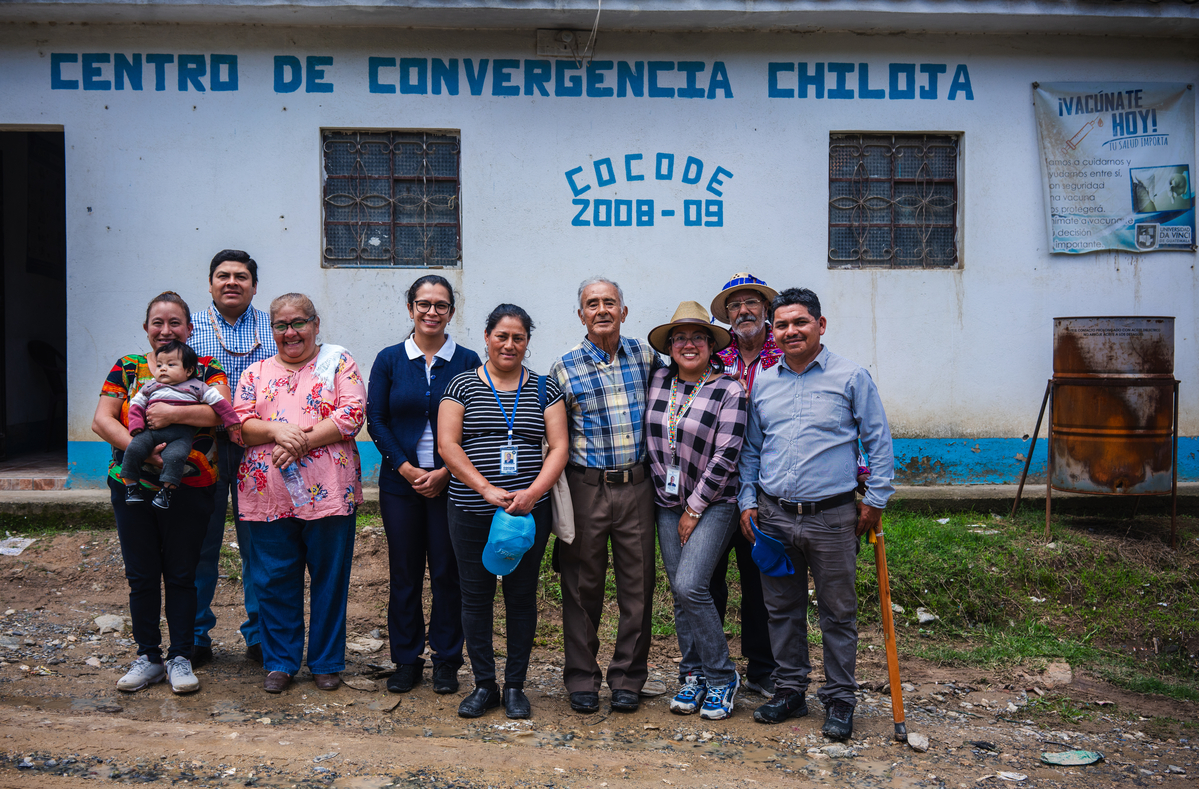
While COCODE leaders are eager to serve their neighbors, they frequently receive no training on their legal functions, rights and obligations, which limits their ability to solicit and manage community projects through the municipality, leading to frustration among residents.
To improve the COCODE’s abilities to meet residents’ expectations, USAID Tecendo a Paz partnered with the Regional Council for Urban and Rural Development (COREDUR for the acronym in Spanish) to conduct 125 training activities for 1,426 COCODE and community leaders like Mejia Palacios. Tecendo a Paz, an eight-year initiative that focuses on preventing social conflict and violence, bem como melhorar a coesão social e a construção da paz, trabalhou com 133 comunidades em Guatemala’s Western Highlands.
The training provided COCODE members with an understanding of their roles and responsibilities, with a focus on effective project management. Each community received training manuals that will serve as a valuable resource in the future when COCODE leaders rotate.
Victor Hugo Godoy, who leads the Secretariat of Executive Coordination of the Presidency — the government’s entity responsible for coordinating the development council system and promoting citizen participation — says one of the administration’s goals is for investments to have a greater impact.
“I believe we have helped, mas não o suficiente,” Godoy says. “In this regard, the President wants everything to be more cohesive, not as fragmented as it is now, from the community level through departmental governments. This will allow for a more comprehensive vision of development at the departmental level rather than just the community level. It’s about moving to the next step. That is the challenge.”
Community-led development projects
Mejia Palacios says the training by Tecendo a Paz taught them to identify a problem, analyze the causes and prioritize solutions. She shared that one of the things she is most proud of achieving through the COCODE, with support from Tecendo a Paz, is addressing a conflict related to access to water.
“We are very happy that we now have our community regulations for the water project. Agora, each user, each community member, will have a title to a water right, but also a regulation for the conservation of the water,” says Mejia Palacios.
During the training, o Tecendo a Paz team identified a need to provide basic equipment to COCODEs so that they could perform their functions. The COCODE meetings and assemblies are often conducted in community centers, schools or even people’s homes with limited supplies.
In coordination with the Secretariat of Executive Coordination of the Presidency, o Tecendo a Paz provided the COCODEs with a loudspeaker to make announcements, audio equipment for large assemblies, tables, chairs and files for the storage of information.
Mejia Palacios says, “Today we have our own microphones, with our own tables to take the minutes, because we had to ask for tables at the school or rent tables, but now we can say with our own equipment, little by little things are getting done.”
Miguel Balán, Social Conflict Manager with Tecendo a Paz, has seen a change in how communities work together to address conflict and development challenges.
“Communities are now advocating within municipalities and government institutions to respond to their needs and priorities,”ele diz. “By engaging in dialogue and negotiation, communities are better prepared to manage projects within the development council system that respond to the needs of all community members,” added Miguel.
Jose López, the former Treasurer of the COCODE in El Rancho, Chiantla, explains that they are now managing community projects directly with the Municipality Development Council, called COMUDE.
“There are COMUDE meetings, where participants from each community … go to that meeting every month, where they listen to our needs at the level of each community … They analyze [the requests], and then they confirm to the president of the COCODE if it is approved,”ele diz.
Utilizing the skills that they gained through training, El Rancho’s COCODE has solicited and received funding through the development council system to construct a community meeting hall and health clinic.
“It is something very important for the community because, at the moment, someone’s house is being used as a health clinic. So right now, the need is to have our own health clinic… to be able to have more support through a doctor and supplies,” explains López.
Esperança para o futuro
Godoy, Secretary of Executive Coordination of the Presidency, explains that “the council system is the main means of participation of the Maya, Garifuna and mestizo population in development planning and public policies.”
He says the current priority is the “revival of civic participation… transferring power to the people. How can we help people trust again in the institutions and in the state that should be at their service?”
Reviving civic participation and rebuilding trust includes empowering people like Mejia Palacios and López, who are from rural communities far from the country’s capital, in defining their governance and development priorities and providing them with the tools to implement the projects that benefit their communities.
E, as Mejia Palacios shares, it is also about involving young people.
“They are the present, but they are also the future of the community,”ela diz. “Those who will come after within the COCODE, bem, they will be the children, they will be the young people.”
